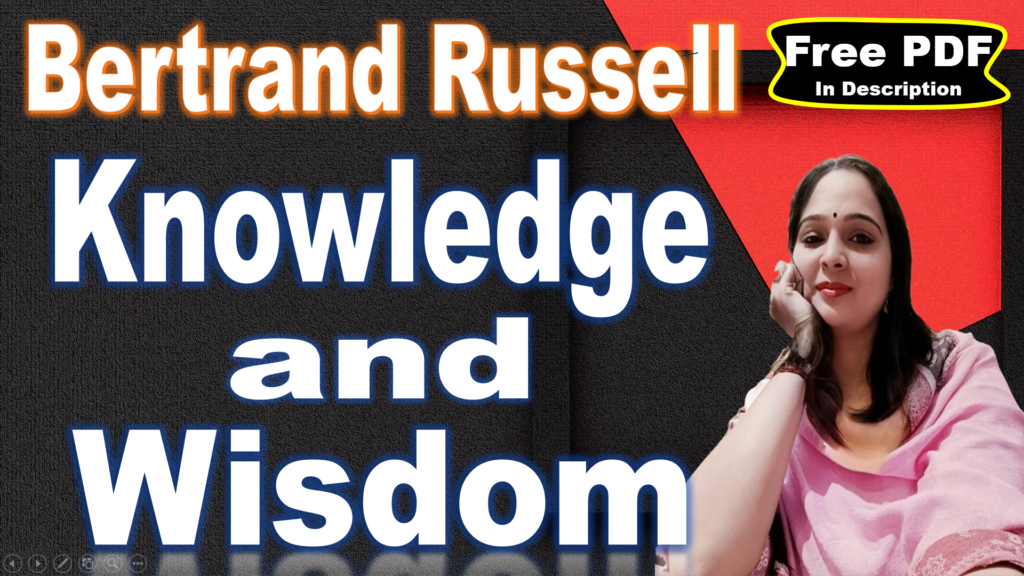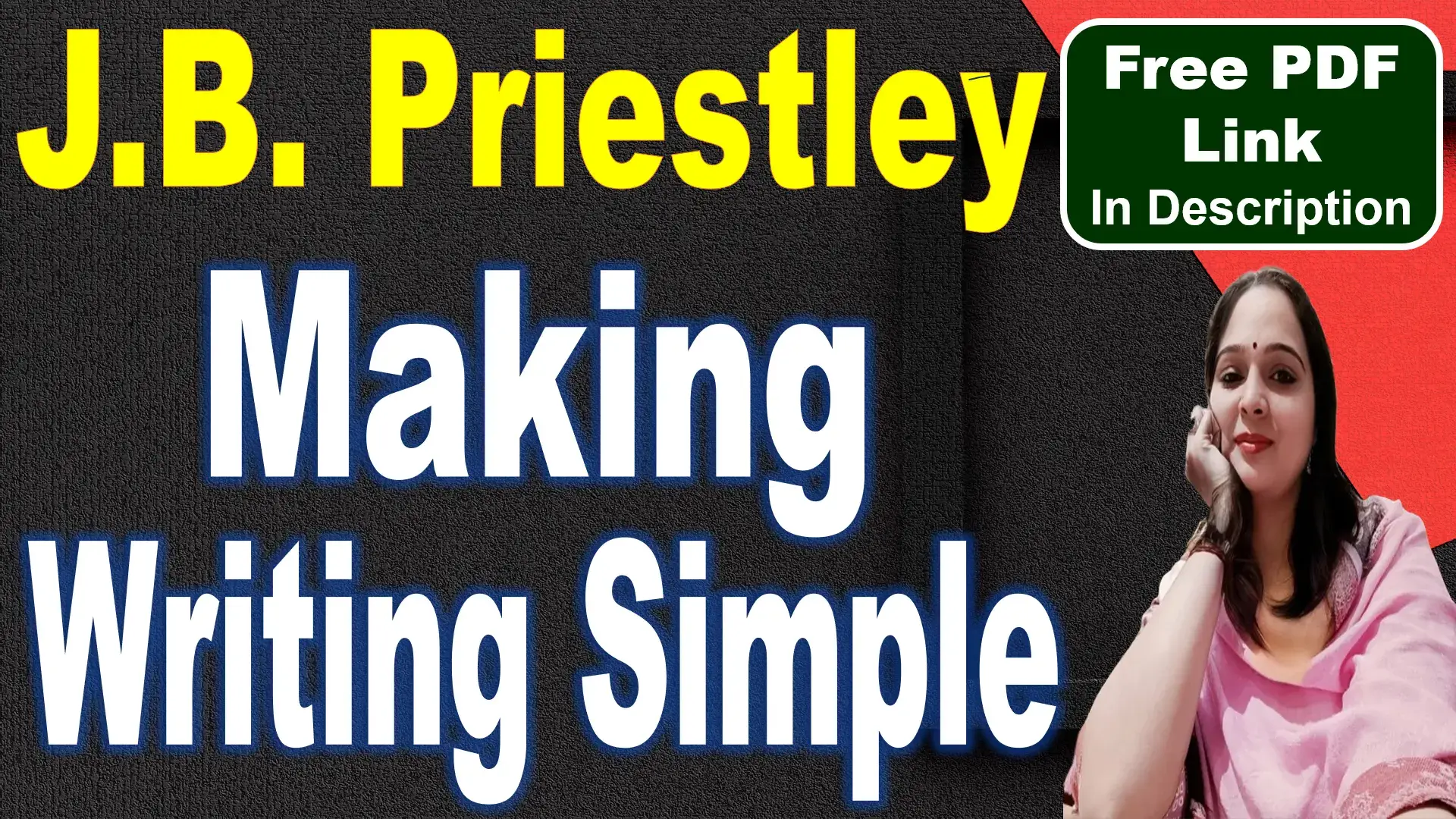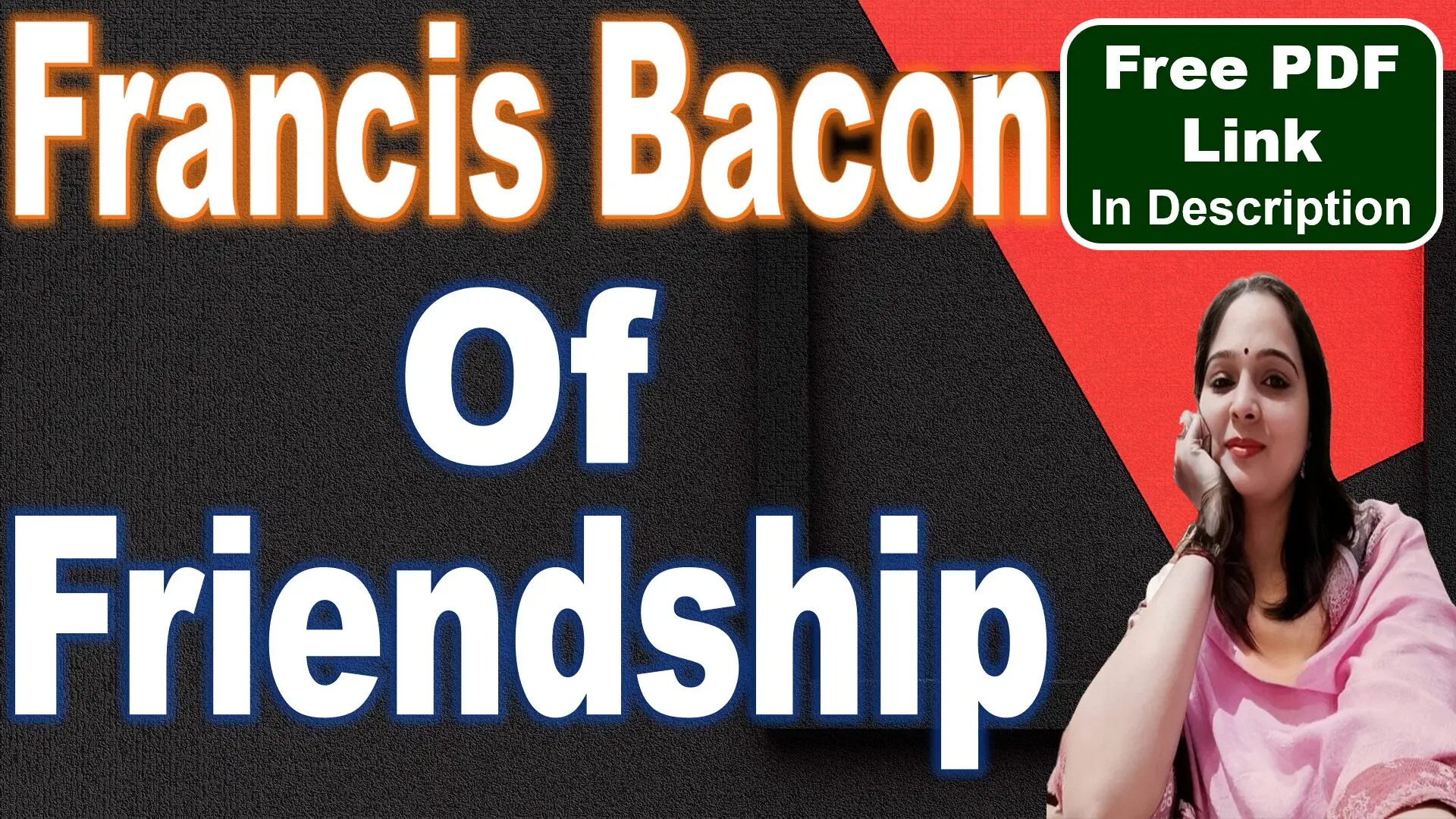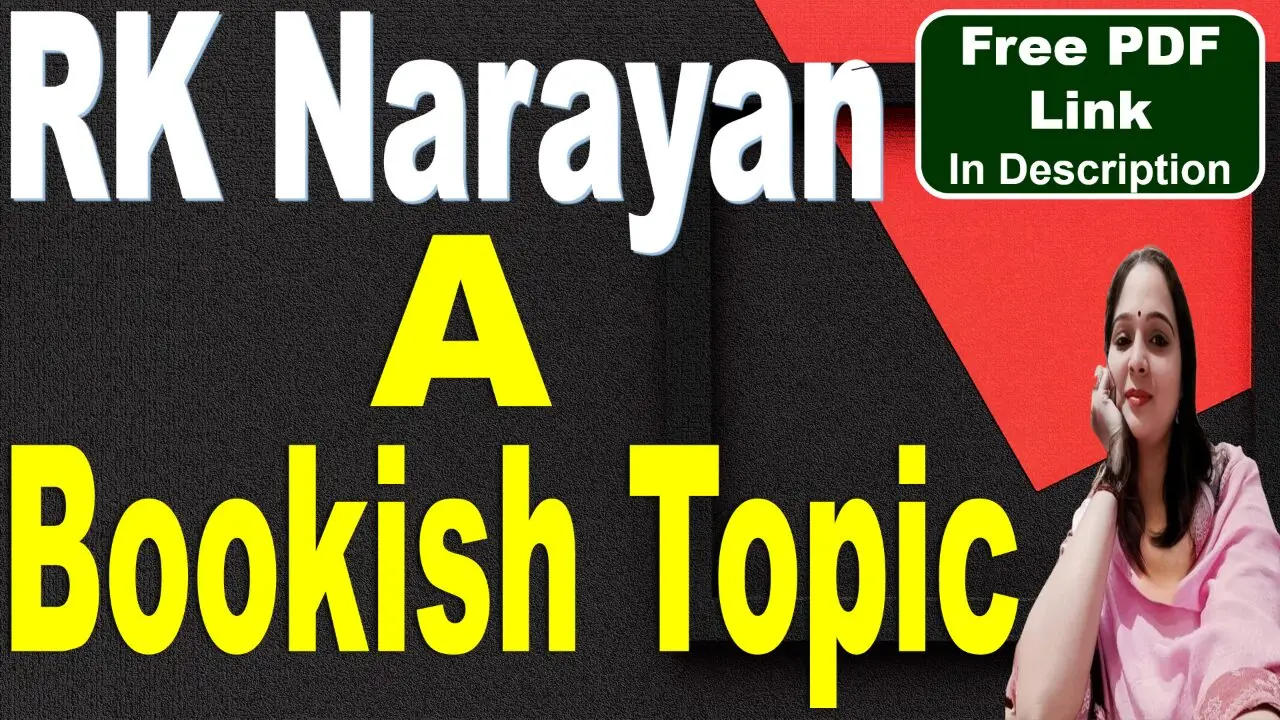
Knowledge and Wisdom by Bertrand Russell | Knowledge and Wisdom | Bertrand Russell | Key Points | Summary | Word Meaning | Questions Answers | Critical Appreciation | Free PDF Download – Easy Literary Lessons
Knowledge and Wisdom
Most people would agree that, although our age far surpasses all previous ages in knowledge, there has been no correlative increase in wisdom. But agreement ceases as soon as we attempt to define `wisdom’ and consider means of promoting it. I want to ask first what wisdom is, and then what can be done to teach it.
There are, I think, several factors that contribute to wisdom. Of these I should put first a sense of proportion: the capacity to take account of all the important factors in a problem and to attach to each its due weight. This has become more difficult than it used to be owing to the extent and complexity fo the specialized knowledge required of various kinds of technicians. Suppose, for example, that you are engaged in research in scientific medicine. The work is difficult and is likely to absorb the whole of your intellectual energy. You have not time to consider the effect which your discoveries or inventions may have outside the field of medicine. You succeed (let us say), as modern medicine has succeeded, in enormously lowering the infant death-rate, not only in Europe and America, but also in Asia and Africa. This has the entirely unintended result of making the food supply inadequate and lowering the standard of life in the most populous parts of the world. To take an even more spectacular example, which is in everybody’s mind at the present time: You study the composistion of the atom from a disinterested desire for knowledge, and incidentally place in the hands of powerful lunatics the means of destroying the human race. In such ways the pursuit of knowledge may becorem harmful unless it is combined with wisdom; and wisdom in the sense of comprehensive vision is not necessarily present in specialists in the pursuit of knowledge.
Comprehensiveness alone, however, is not enough to constitute wisdom. There must be, also, a certain awareness of the ends of human life. This may be illustrated by the study of history. Many eminent historians have done more harm than good because they viewed facts through the distorting medium of their own passions. Hegel had a philosophy of history which did not suffer from any lack of comprehensiveness, since it started from the earliest times and continued into an indefinite future. But the chief lesson of history which he sought to unculcate was that from the year 400AD down to his own time Germany had been the most important nation and the standard-bearer of progress in the world. Perhaps one could stretch the comprehensiveness that contitutes wisdom to include not only intellect but also feeling. It is by no means uncommon to find men whose knowledge is wide but whose feelings are narrow. Such men lack what I call wisdom.
It is not only in public ways, but in private life equally, that wisdom is needed. It is needed in the choice of ends to be pursued and in emancipation from personal prejudice. Even an end which it would be noble to pursue if it were attainable may be pursued unwisely if it is inherently impossible of achievement. Many men in past ages devoted their lives to a search for the philosopher’s stone and the elixir of life. No doubt, if they could have found them, they would have conferred great benefits upon mankind, but as it was their lives were wasted. To descend to less heroic matters, consider the case of two men, Mr A and Mr B, who hate each other and, through mutual hatred, bring each other to destruction. Suppose you dgo the Mr A and say, ‘Why do you hate Mr B?’ He will no doubt give you an appalling list of Mr B’s vices, partly true, partly false. And now suppose you go to Mr B. He will give you an exactly similar list of Mr A’s vices with an equal admixture of truth and falsehood. Suppose you now come back to Mr A and say, ‘You will be surprised too learn that Mr B says the same things about you as you say about him’, and you go to Mr B and make a similar speech. The first effect, no doubt, will be to increase their mutual hatred, since each will be so horrified by the other’s injustice. But perhaps, if you have sufficient patience and sufficient persuasiveness, you may succeed in convincing each that the other has only the normal share of human wickedness, and that their enmity is harmful to both. If you can do this, you will have instilled some fragment of wisdom.
I think the essence of wisdom is emancipation, as fat as possible, from the tyranny of the here and now. We cannot help the egoism of our senses. Sight and sound and touch are bound up with our own bodies and cannot be impersonal. Our emotions start similarly from ourselves. An infant feels hunger or discomfort, and is unaffected except by his own physical condition. Gradually with the years, his horizon widens, and, in proportion as his thoughts and feelings become less personal and less concerned with his own physical states, he achieves growing wisdom. This is of course a matter of degree. No one can view the world with complete impartiality; and if anyone could, he would hardly be able to remain
alive. But it is possible to make a continual approach towards impartiality, on the one hand, by knowing things somewhat remote in time or space, and on the other hand, by giving to such things their due weight in our feelings. It is this approach towards impartiality that constitutes growth in wisdom.
Can wisdom in this sense be taught? And, if it can, should the teaching of it be one of the aims of education? I should answer both these questions in the affirmative. We are told on Sundays that we should love our neighbors as ourselves. On the other six days of the week, we are exhorted to hate. But you will remember that the precept was exemplified by saying that the Samaritan was our neighbour. We no longer have any wish to hate Samaritans and so we are apt to miss the point of the parable. If you wnat to get its point, you should substitute Communist or anti-Communist, as the case may be, for Samaritan. It might be objected that it is right to hate those who do harm. I do not think so. If you hate them, it is only too likely that you will become equally harmful; and it is very unlikely that you will induce them to abandon their evil ways. Hatred of evil is itself a kind of bondage to evil. The way out is through understanding, not through hate. I am not advocating non-resistance. But I am saying that resistance, if it is to be effective in preventing the spread of evil, should be combined with the greatest degree of understanding and the smallest degree of force that is compatible with the survival of the good things that we wish to preserve.
It is commonly urged that a point of view such as I have been advocating is incompatible with vigour in action. I do not think history bears out this view. Queen Elizabeth I in England and Henry IV in France lived in a world where almost everybody was fanatical, either on the Protestant or on the Catholic side. Both remained free from the errors of their time and both, by remaining free, were beneficent and certainly not ineffective. Abraham Lincoln conducted a great war without ever departing from what I have called wisdom.
I have said that in some degree wisdom can be taught. I think that this teaching should have a larger intellectual element than has been customary in what has been thought of as moral instruction. I think that the disastrous results of hatred and narrow-mindedness to those who feel them can be pointed out incidentally in the course of giving knowledge. I do not think that knowledge and morals ought to be too much separated. It is true that the kind of specialized knowledge which is required for various kinds of skill has very little to do with wisdom. But it should be supplemented in education by wider surveys calculated to put it in its place in the total of human activities. Even the best technicians should also be good citizens; and when I say ‘citizens’, I mean citizens of the world and not of this or that sect or nation. With every increase of knowledge and skill, wisdom becomes more necessary, for every such increase augments our capacity of realizing our purposes, and therefore augments our capacity for evil, if our purposes are unwise. The world needs wisdom as it has never needed it before; and if knowledge continues to increase, the world will need wisdom in the future even more than it does now.





